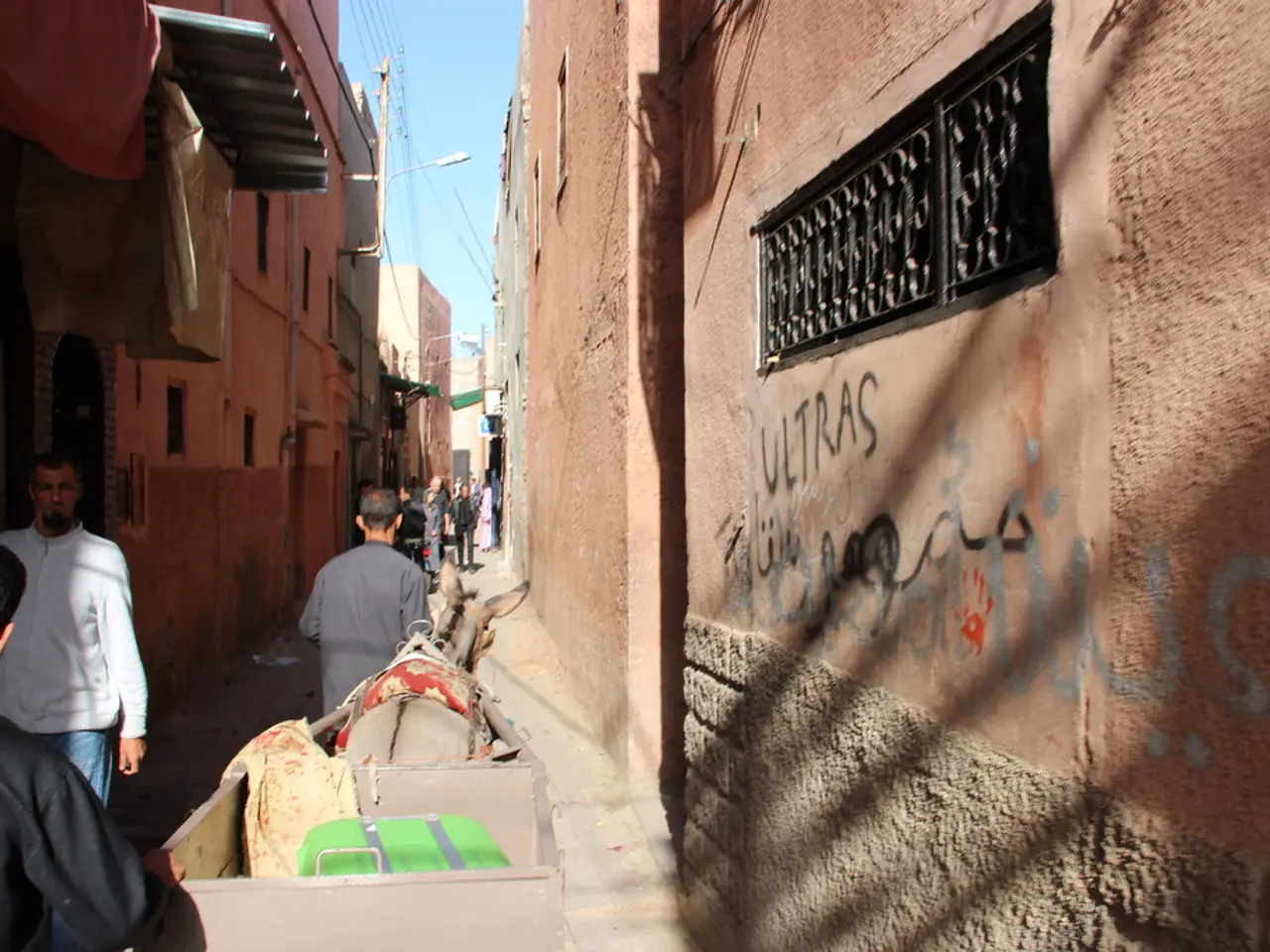Anxiety in Tel Aviv: Citizens on Edge
In a significant move, Canada, France, and the United Kingdom have announced plans to recognize Palestine at the upcoming UN General Assembly session in September 2025. This decision, citing the erosion of prospects for a negotiated two-state solution and the need to support peace and security in the region, has sparked a wave of reactions across the globe.
The announcement has been met with strong condemnation from Israel, with Prime Minister Benjamin Netanyahu labeling it as a reward for Hamas, a group considered a terrorist organization. Former U.S. President Donald Trump also criticized Canada, warning it could jeopardize future trade deals.
In the Middle East, reactions have been mixed. Arab states such as Qatar, Saudi Arabia, and Egypt have supported calls for Hamas to disarm and cease its rule over Gaza. These countries participated alongside France in a UN conference advocating for the two-state solution and strengthening Palestinian governance reforms.
The recognition by Western countries could embolden Palestinian statehood aspirations, increase pressure on Israel regarding settlement policies, and reshape diplomatic alignments in the Middle East. However, it also risks deepening divisions, as Israel and its allies see it as bypassing direct negotiations and potentially rewarding factions they oppose.
The emphasis on Palestinian reforms and demilitarization reflects Western concerns about stability and security and seeks to frame recognition as conditional to peaceful coexistence. Many politicians in the region are relieved that there is movement in the stalled negotiations towards an end to the conflict and peace.
However, there is a long-standing fear in Amman, Jordan, that the attempted expulsion of as many Palestinians as possible from the West Bank and Gaza Strip by Israeli extremists could trigger a new wave of refugees.
Meanwhile, Israeli Minister Ben Gvir's vision of "Greater Israel" includes the annexation of the Gaza Strip and the West Bank, as well as southern Lebanon, the outskirts of the Golan Heights, and southern Syria. His ministry, with funds approved by Finance Minister Smotrich, is currently securing the expansion of new settlements in the West Bank, with a total of 400 planned for this year.
This decision by Western countries could mark a turning point in the long-standing Israeli-Palestinian conflict, with potential diplomatic friction, increased pressure on Israel, and reshaped alliances in the Middle East. The political implications include increased international momentum toward Palestinian statehood under specific conditions, potential diplomatic friction with Israel and aligned countries, and heightened calls within the Middle East for Hamas to relinquish militant control for peace prospects.
- The decision by Canada, France, and the United Kingdom to recognize Palestine could embolden casino personalities and gambling enthusiasts in the Middle East, as some may view it as a sign of progressive policy-and-legislation and general-news movements.
- As the conversations around migration intensify, there are growing concerns among regional politics and crime-and-justice experts about a possible wave of refugees from the West Bank and Gaza Strip, triggered by Israeli extremist actions.
- In light of the evolving circumstances surrounding war-and-conflicts and the Palestinian-Israeli conflict, it is crucial for the international community to consider the implications of future diplomatic decisions, such as casino investments and developments, within the geopolitical landscape of the Middle East.
- In the vein of progress and promoting peace, many believe that this recognition by Western countries could serve as an incentive for the dismantling of Hamas's militant control and their embracing of a stronger role in casino-and-gambling regulation and legislation, which could promote security and stability in the region.




